Thousands of people gathered as night fell to celebrate the streets of the capital Baghdad, a city of eight million people and a bloody modern history.
They celebrated in civilian clothes, without waving weapons, as is customary in demonstrations of political power in Iraq, and carried mostly posters.
The celebrants, who celebrated last month with great joy a victory for their party in the parliamentary elections, after a day of sparse voting, distributed flowers and sweets to passers-by and chanted slogans condemning foreign intervention in Iraq's affairs.
While in the past most of the calls were directed against the presence of the United States, the celebrants this time cried out against Tehran’s intervention.
Some of them even consumed the energies from the recent victory in the proclamations of the pro-Iranian militias in the country.
At night, when the results of the election campaign became clear, the climax of the night came when the big star of the electoral victory, the man who is expected to become the king of kings in the divided and difficult politics of the troubled country, came to the speech.
The same leader was Muqtada a-Sadr, a Shiite cleric.
His supporters, who also flooded Baghdad squares, were mostly Shiites.
And while a-Sadr and his men celebrated victory, wrinkles of worry and rage appeared on foreheads in the neighboring capital Tehran.
The legacy of the invasion
Anyone who knows the story of Iraq knows that it is a country made up of patchwork by the British, and as a result its composition of population is far from homogeneous. Of Iraq's Arab population, excluding the 20% of Kurds living in the north of the country under autonomy, close to 70% are Shiites while only 30% are Sunnis. However, since the independence of Iraq, those who controlled the state and military institutions have been the Sunnis, who in many cases - and especially under the rule of dictator Saddam Hussein - have held the Shiite population under religious and political repression.
Everything changed when in 2003 the United States invaded Iraq and overthrew the Hussein regime.
In an attempt to produce a new and democratic leadership for Iraq, the Americans decided to clean up stables including local government.
The decision by the invading forces not to allow the Saddam regime and its Ba'ath party to join the new regime pushed the Sunni population and its leaders into the arms of terrorist groups, but also gave the Shiites, for the first time in Iraq's history, the reins of power.
Saddam Hussein, Photo: EPI, Getty Images
Democratic elections were held in the country and Shiite politicians, most of them moderate and quite far from the influence of Tehran, came to power.
But Iraq, despite its elected leadership, knew no stability and prosperity: a protracted civil war, throughout the first and second decades of the 21st century, involved bloody attacks by Sunni terrorists and retaliatory actions by Shiite militias, in which hundreds of thousands of Iraqi civilians were killed.
The security chaos very quickly changed the Iraqi political system as well.
While the government, closed in the "green zone" in Baghdad, was losing relevance on the street, Sunni and Shiite militias began to gain power - first military and then political.
ISIS leader in Iraq, Abu Bakr al-Baghdadi, addressed a mosque in Mosul in 2014.
Eliminated in 2019 by US, Photo: AFP
This arena of chaos - in which the United States, caught in the whirlwind of violence in Iraq while trying to oust Sunni terrorist organizations from the country - has given Iranian agents perfect fertile ground for action.
Iran has begun, gradually and steadily, to build its power among the country's Shiites, using local armed militias set up to protect the lives of Shiite civilians from al-Qaeda terrorism and other Sunni terrorist organizations.
Iran's major breakthrough came in 2014. Iraq, its government and army collapsed under the boots of a new Sunni extremist terrorist organization - ISIS.
The Iraqi army forces trained by the United States simply melted before the organization's terrorists, and the country's second largest city, Mosul, fell to the Islamic State.
Shiite militia members in Karbala, 2014, Photo: IPI
Towards the end of 2014, ISIS forces stood near Baghdad and threatened to break south, towards the Shiite area of Iraq where the Shiite holy cities - Najaf and Karbala.
The fear of a mass kitchen in the event of another collapse of the Iraqi army encouraged the Shiite population to mobilize to fight the organization, and the one who cut short the profit was an umbrella organization of pro-Iranian militias - the "People's Recruitment" organization, or in Arabic: Khashd a-Shaabi.
The organization recruited tens of thousands of fighters and took part in the tremendous effort to turn the bowl upside down in the war against ISIS.
The "prize" for this partnership in the victory over the terrorist organization was control without Egypt of entire chunks of Iraqi politics and society.
The party that represented the al-Fatah organization won seats in parliament and the militiamen gained control of all areas of life in Iraq, from market speculators to running the drug and prostitution business.
The rule of the armed militias further corrupted the Iraqi political system and alongside security instability and economic collapse, local politics has become a wild west where Iran plays like in its own private playground.
The roof of the Turkish restaurant
At the end of 2019 something happened that stunned the experts and commentators.
After years in which everyone witnessed Iran's imminent takeover of Iraq, through the powerful Khashd al-Shaabi organization and its allies, two things happened that no one expected: the first was the assassination of the Quds Force commander of the Iranian Revolutionary Guards at Baghdad International Airport. By the United States.
Along with him, the commander of Hashd a-Shaabi, Abu Mahdi al-Muhandis, was also assassinated;
The second event that took place, and preceded the assassination, was an unprecedented wave of protests against the government.
Pro-Iranian militias step on Israeli and US flags last month in Baghdad, Photo: IPI
Hundreds of thousands of protesters, young men and women, went out to demonstrate against government corruption, tribal rule and the preference of associates imposed by the armed militias on the state and economic and security instability. The protesters filled the heart of the capital Baghdad and became the first democratic (non-violent) mass movement (for the most part at least) in the history of modern Iraq. What amazed the world was that most of them were Shiites. The protesting youths angrily stormed the Iranian consulates in the Shiite holy cities, venting their anger on Tehran symbols.
For weeks, protesters clashed with police and barricaded themselves in an abandoned high-rise building, known as the "Turkish Restaurant," in the heart of Baghdad. Police tried to fire tear gas, rubber bullets and water jets to disperse the stubborn protesters - but were unsuccessful. The Iraqi army refused to disperse the young men with live fire and those who took on the bloody mission were Revolutionary Guards snipers, brought in by Iran with the aim of stifling the protest. Iranian readiness to shed blood succeeded and the roof of the Turkish restaurant in the heart of Baghdad became a convenient target for Iranian snipers. The heartbreaking images of young Iraqis dragging their dead comrades down the tower have been left to fend for themselves in the Injustice Hall of the Middle East.
Not just for Iraq’s Shiite youth, the October 2019 protest was a defining and traumatic moment.
Muqtada a-Sadr, a Shiite cleric known up to that point mainly in the revolt against American forces in Iraq, which he led, was personally and deeply burned by the events.
Al-Sadr, a native of Iraq and an Iraqi nationalist, entered local politics with all his might and began marketing himself as a reformist opposed to foreign involvement and corruption.
As such, he and his loyalists supported the protest and were outraged at Iran's attempt to silence it.
But under pressure from clerics in Tehran, al-Sadr was summoned to Iran and forced to withdraw his support for the protest.
This blatant move by the Islamic Republic left Sadr bitter and even more critical of Tehran, and his opportunity was not long in coming.
The King of Kings
In last month's elections in Iraq, the intricate political map of Iraqi democracy provided a complex but clear-cut result, with the results of the country's 2021 election campaign known.
The one who emerged victorious was a-Sadr, a Shiite cleric who for years has been cultivating a political list made up of various forces.
A-Sadr's list now won 75 seats in the 383-seat parliament, making it its largest party.
A-Sadr, Photo: Reuters, IPI
"All embassies are desirable in our country, as long as they do not promote interference in Iraq's internal affairs," al-Sadr said in his victory speech to thousands of supporters of the Islamic National Movement in the capital, Baghdad.
A clear hint of the siege imposed by Iranian supporters on the US embassy in 2019. The speech stressed that al-Sadr was willing to extend an olive branch to Washington, in the form of cooperation in curbing Iran's influence in Baghdad - the proceeds to complete US military withdrawal from Washington. Where a-Sadr became king of kings.
But in the face of a-Sadr, an extremist front is emerging that does not resort to violence.
The Fatah movement, loyal to Hashd a-Shaabi and Iran, has already announced that it will not accept the results of the parliamentary elections, and its leaders said the movement would use force against a-Sadr's people if the Baghdad authorities did not declare a recount.
Quds Force Commander Kaani, Photo: IPI
In addition, the Quds Force commander of the Revolutionary Guards, Ismail Kaani, has visited Baghdad several times since the election in order to persuade various Shiite factions to cooperate in order to establish a non-Sadr bloc and prevent the formation of a government hostile to Tehran's intentions. Iran is also courting Kurdish and Sunni politicians, longtime rivals, on the understanding that in the battle for the future of control of Iraq - all allies are kosher.
The very idea of a Shiite-religious government, but hostile to Tehran, keeps sleep out of the eyes of senior Ayatollahs.
Iraq is a key part of Iran's axis of control in the Middle East, running from the Dahiya neighborhood in Beirut to Tehran via Syria.
A hostile government in Baghdad could crumble years of work in Syria and Lebanon, blocking Tehran's overland access to its flagship projects in the region.
In addition, a stable and strong nationalist-Iraqi government, supported by Western powers, could pose a real threat to Tehran's borders.
Anyone familiar with Iran's conduct in Iraq and the options available to it knows that there is no chance that Tehran will allow the cleric to form a government of his own without paying a heavy price for it.
Khamenei, Photo: AP, IPI
But apart from the Iranian resistance, a-Sadr suffers from other weaknesses.
The image of the energetic reformist who raised him to greatness among the lower and middle class of the Shiites in Iraq is gradually eroding as his people occupy more and more senior positions.
The control of his people in the Iraqi Ministry of Health has led to harsh criticism of their conduct, including that of the veteran cleric himself.
The generation of protest that turned a rebellious a-Sadr into a monarch will not tolerate forever the whim of the charismatic leader, and the main power of the cleric is the tremendous public support he enjoys, more than any other leader in Iraq.
Will he be able to translate this power into a constitutional revolution in Iraq and removal is a question whose answer is vague.
But al-Sadr's rise demonstrates how, in less than a decade, Iran has managed to make itself and its ambitions unbearable for its most loyal partners.

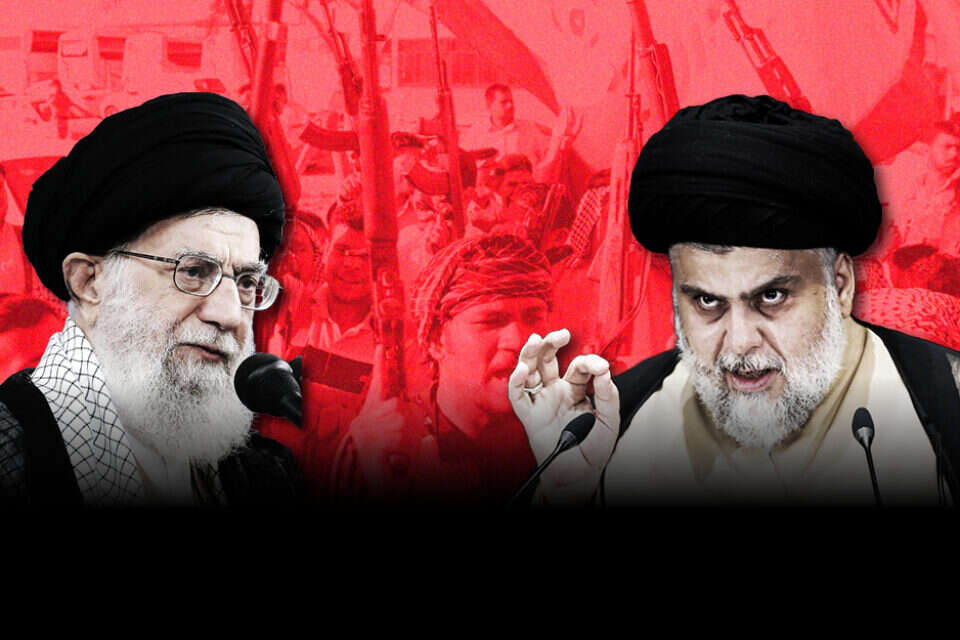

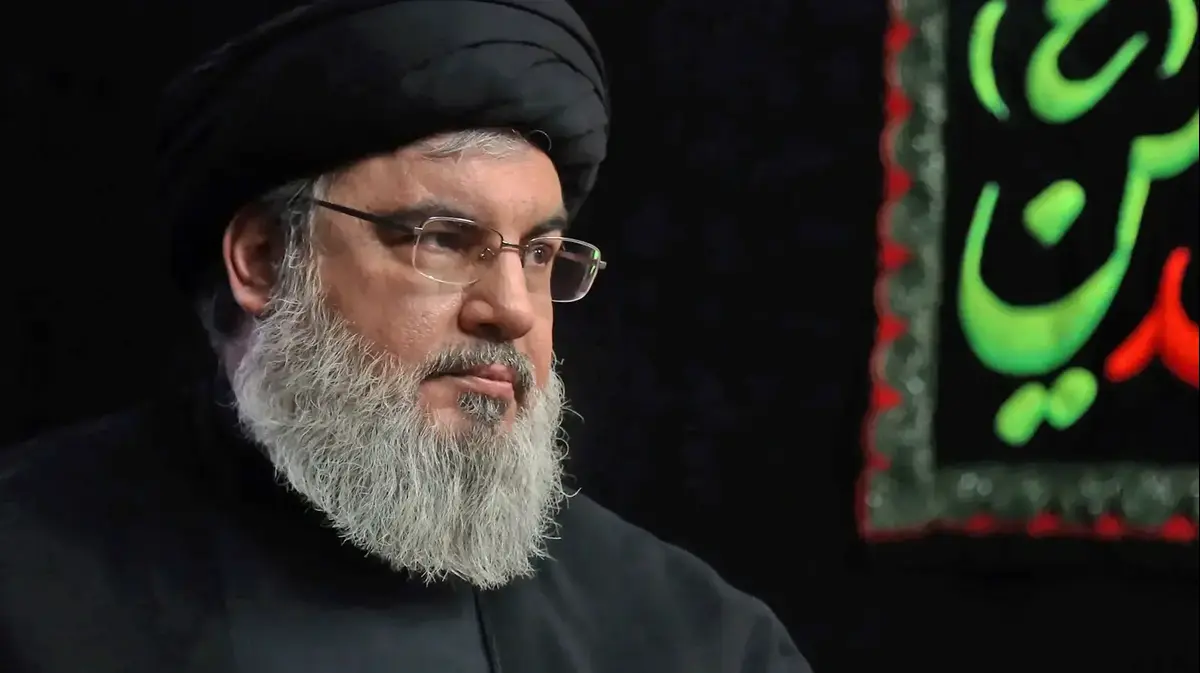
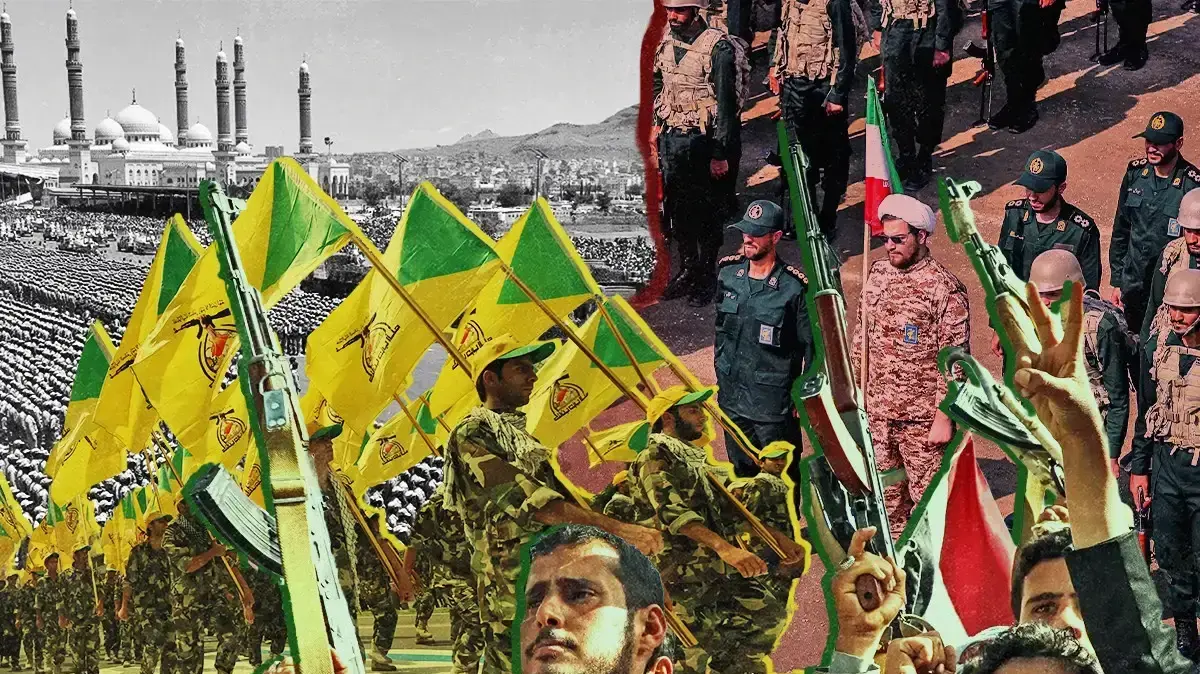

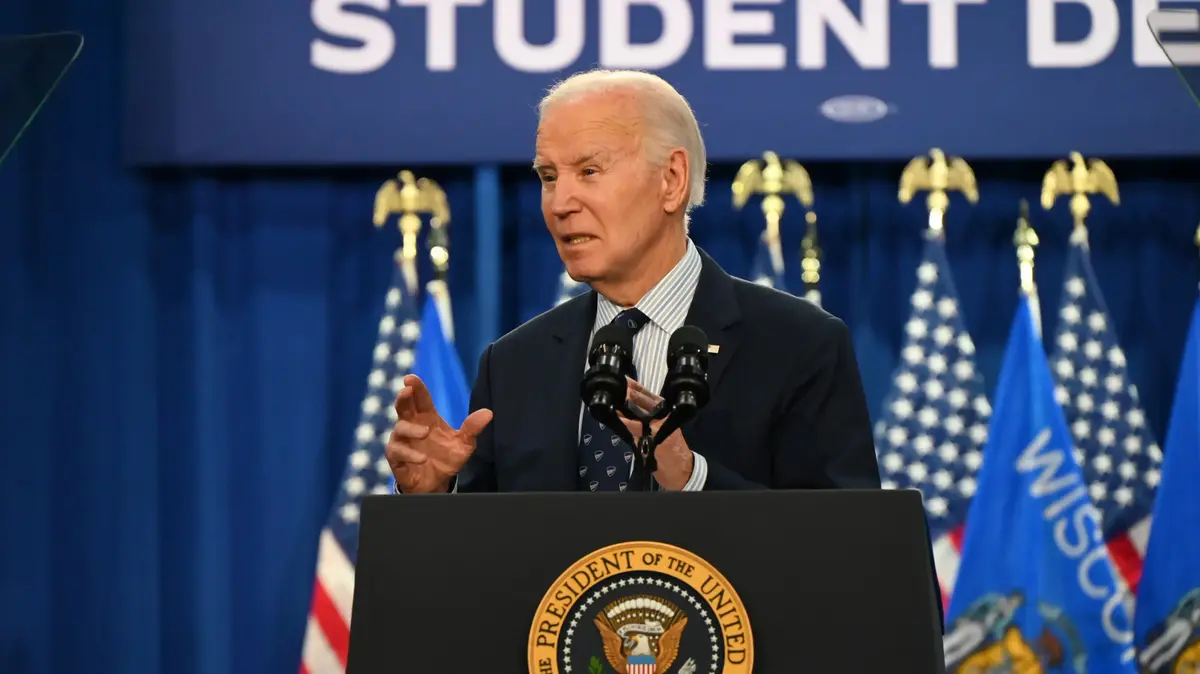
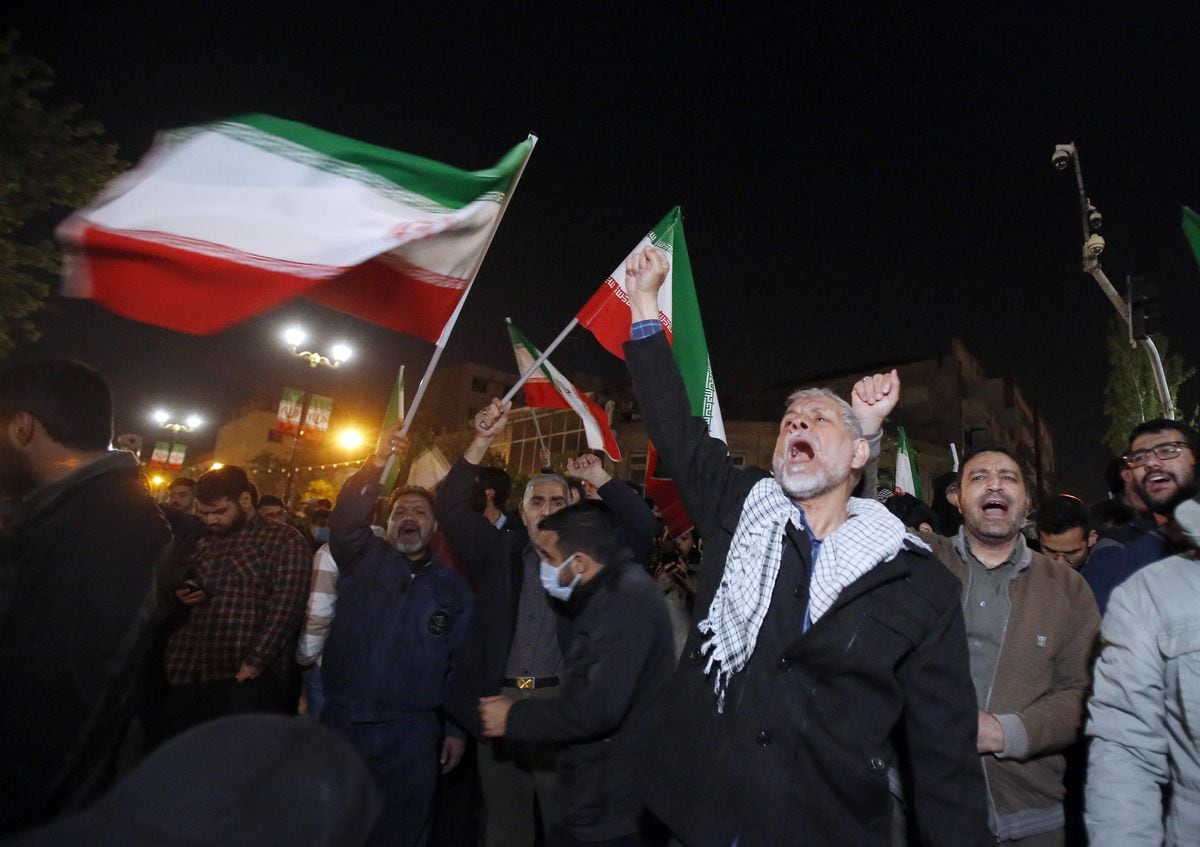




/cloudfront-eu-central-1.images.arcpublishing.com/prisa/KMEYMJKESBAZBE4MRBAM4TGHIQ.jpg)


